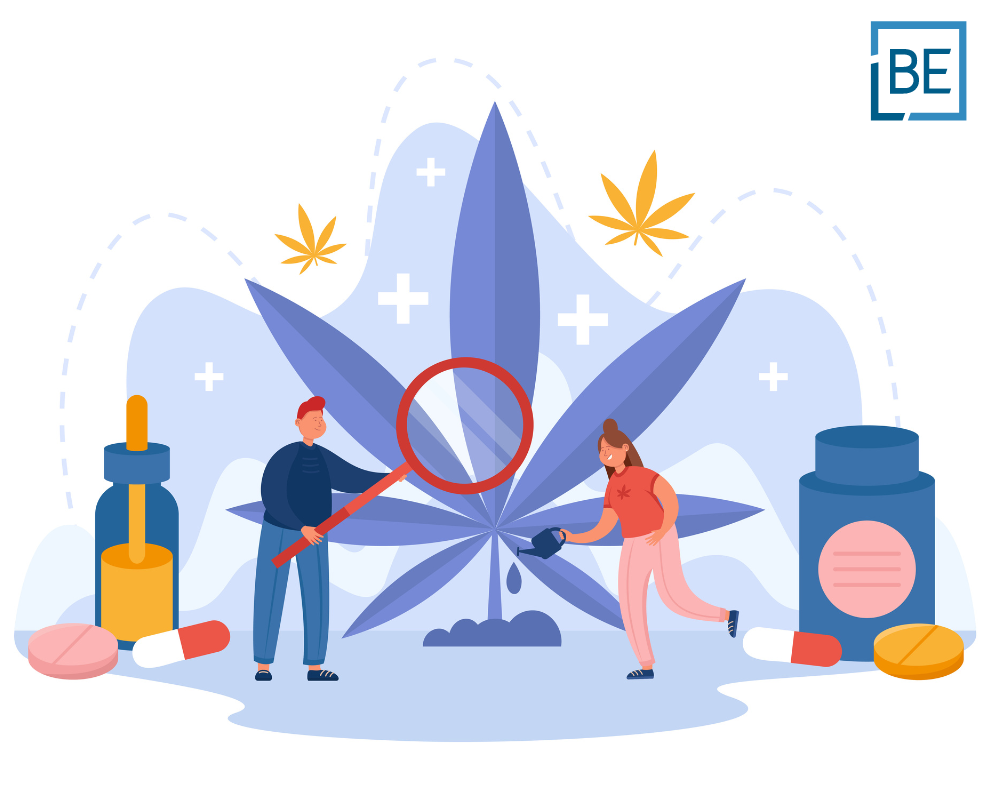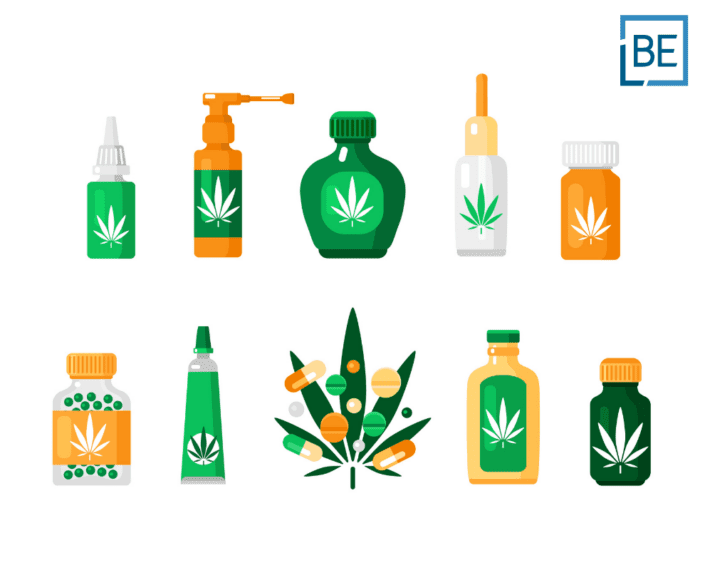Belaws Home ›› Thailand ›› Blog ›› A Guide to Doing Business in Thailand’s Cannabis Industry in 2023
legal
A Guide to Doing Business in Thailand’s Cannabis Industry in 2023
With the legalization of cannabis in Thailand, the country has opened up new opportunities for businesses to tap into this emerging industry. This move by the Thai government is part of a broader trend of countries worldwide relaxing their laws around cannabis as its medicinal properties become increasingly recognized.
For entrepreneurs and investors looking to take advantage of this shift, Thailand offers a promising market with a supportive regulatory environment. This blog post will explore the critical aspects of business in Thailand’s cannabis industry, from the legal framework to market opportunities and potential challenges.
Key points
- Foreigners cannot 100% own a Cannabis business in Thailand.
- A Thai company with at least one Thai national shareholder (who owns > 50% of the shares) can operate a Cannabis business.
- Cannabis businesses require business licences/certificates to operate legally.
- Cannabis and cannabis extracts (containing less than 0.2% THC) are legal.
- Smoking cannabis on business premises has been banned (unless the sale is by medical practitioners, traditional medicine practitioners, or certified rural medics).
- All forms of advertising cannabis for commercial purposes have been prohibited.
- Licensed businesses must also report to the government the amount of stock they hold and details of sourcing and use.
What is the legal status of cannabis in Thailand?
Following the removal of cannabis and hemp from the list of Category 5 narcotics by Thailand’s Food and Drug Administration, the country’s regulations on these substances have been evolving.
While the plants are now legal, there are still strict guidelines regarding the THC content in cannabis and hemp extracts and products. Additionally, licenses are necessary for importing, growing, and distributing the cannabis plant, categorized as a controlled herb. However, despite ongoing developments, there has yet to be an all-encompassing law passed on cannabis and hemp in Thailand.
In Thailand, the private consumption of cannabis is legal, but smoking it in public can result in a hefty fine of 25,000 baht or up to three months in jail. However, it’s important to note that “smoking cannabis” usually refers to the flower part of the plant, as other parts, such as leaves, stems, and seeds, can be consumed without restriction. Obtaining and using cannabis extracts or oils with a THC content greater than 0.2% requires a prescription from a licensed medical professional.
Update:
In September 2024, the government announced a new legislative proposal was under consideration in relation to the Cannabis Laws. This proposal could reshape how cannabis is used and commercialised in Thailand.
The draft, proposed by the Ministry of Public Health, aims to maintain the plant’s legal status while introducing stricter controls.
Key highlights include:
- Medical and Research Use: Cannabis will remain legal for medical treatments and research under strict supervision by licensed professionals or authorized agencies.
- Recreational Use Restrictions: While recreational use isn’t explicitly banned, restrictions on personal consumption remain in place, emphasizing controlled use in compliance with other laws.
- Licensing and Compliance: Businesses involved in cultivation, sales, or exports must secure new licenses, categorized by cultivation scale (small, medium, or large). A Cannabis Regulatory Board will oversee compliance.
- Sales Restrictions: Prohibited methods include online sales, vending machines, and promotional activities. Cannabis may be incorporated into products like herbal remedies, medicines, food, and cosmetics, provided they comply with existing laws.
The bill also introduces penalties for unauthorized use or sales.
More details are expected soon, we will provide updates when we know more.
Read more:
Proposed Cannabis Laws in Thailand: What is Going to Change in 2025?
Can a foreign-owned company start a cannabis business in Thailand?
Generally, cannabis businesses can only be undertaken by a Thai company (a company registered in Thailand with Thai shareholder(s) owning more than 50% of the share capital).
The Thai government has imposed these restrictions to safeguard local businesses against foreign entities with greater resources and access to modern technology. The regulations aim to prevent an influx of foreign players from dominating the market. Additionally, several activities, such as farming and selling food and beverages, are already subject to constraints imposed by Thailand’s Foreign Business Act (FBA). For example, growing cannabis would be considered ‘farming,’ a restricted activity under the FBA.
Furthermore, cannabis businesses are subject to obtaining several licenses. The main licenses are:
– Import License to import cannabis seed
– Production License to produce cannabis plants
– Distribution License to sell cannabis products (retail or wholesale)
What are the main types of cannabis licences?
The cannabis industry in Thailand is highly regulated and different licences are required for certain activities. Which licence you need depends on the activity you carry out. The licencing process is typically a multi-step process with various requirements to the applicant, its shareholders, and its business operations.
Licences for distribution, export, and processing are valid for three years. Licences can be renewed 60 days before the expiration. As it stands, the licence for the production of cannabis does not have a fixed validity period and will not expire, however this may change in the future.
Please note that the above-mentioned licences only cover activities relating to cannabis flowers/leaves. The distribution, import, and export of the other parts of a cannabis plant that can be used for cultivation are subject to a controlled seeds licence from the Plant Controlled Department.
Production licence
Cultivating cannabis requires a cannabis production licence from the Thai FDA. The licence is applicable for each cultivation site. If you wish to have a few locations for cultivation, you must have a licence for each cultivation site.
Distribution licence
The sale of cannabis flowers/ leaves is subject to the business obtaining a cannabis distribution licence from the FDA. Other parts of the cannabis plant such as seeds or the stem will require the business to obtain a controlled seed distribution licence from the Plant Quarantine Department.
Please note, the requirement for obtaining a Distribution licence applies to both wholesale and retail businesses.
Processing licence
The processing of cannabis requires a licence from the FDA. When processedcannabis is used in producing other products, a licence must be obtained from the relevant authority. For example, producing cannabis beverages, the producer must apply for a beverage production licence.
Export licence
The exportation of cannabis flowers/ leaves is subject to the cannabis export licence from the FDA. Other parts of the cannabis plant, such as the seed or stem, will require a controlled seed export licence with the Plant Quarantine Department.
Import licence
You can only import certain parts of the cannabis plant e.g. the seeds and stem. Such production is subject to licence requirements from the Plant Quarantine Department. The importer must provide such a licence to the Customs Department before the importation.
It is not possible to import other parts of the cannabis plant.
What is the best way for a foreign entrepreneur to start a cannabis business?
The quickest and most effective way for foreigners to start a Cannabis business in Thailand is by establishing a Thai Limited Company. However, to comply with the FBA’s ownership rules, 50% of the company’s share capital must be owned by Thai shareholders. Companies established in this way are considered Thai companies and are not subject to the restrictions imposed on foreign-owned companies.
Please note the use of nominee shareholders is expressly prohibited in Thailand.
What activities can a cannabis business in Thailand undertake?
Cannabis businesses in Thailand can undertake the following activities:
Growing/cultivating cannabis:
In Thailand, only Thai nationals are allowed to grow cannabis plants, with no limit on the number of plants that can be cultivated. However, the government encourages individuals to register their plants through the ‘Plookganja’ (“grow cannabis”) website or application to obtain a growing license. While businesses cannot register to farm cannabis directly, stakeholders can register on their behalf. The registration form includes a section declaring the purpose of growing cannabis, with a “commerce” option available.
Cultivating Marijuana requires a Cannabis production licence from the Thai FDA. The licence is applicable for each cultivation site. If you wish to have a few locations for cultivation, you must have a licence for each cultivation site.
Selling cannabis and products that contain cannabis:
When selling food, drinks, or cosmetics that contain cannabis extract, it is essential to ensure that the product does not contain more than 0.2% THC, as required by the law.
However, it is unclear whether the THC content must be below the 0.2% threshold when using cannabis plant components, such as stems, leaves, or other parts, instead of extract.
Although no cannabis-related license is required for businesses manufacturing or selling such products, they must comply with other licensing and regulatory requirements, including obtaining a food production license from the Thai FDA.
As a controlled herb, cannabis flowers cannot be sold without obtaining a distribution licence from the Thai FDA. Furthermore, cannabis flowers cannot be sold to certain categories of people, including:
- students,
- individuals under 20 years old, and
- pregnant or breastfeeding women.
Companies should note advertising cannabis products is strictly prohibited, and the sale of cannabis is prohibited in the following ways:
- temples,
- hostels,
- public parks,
- vending machines,
- online platforms,
- and amusement parks.
Cannabis flowers can only be sold in physical stores, and purchases cannot be consumed on the premises.
Businesses licensed to sell cannabis flowers must maintain detailed records, including inventory, sources, and intended use, which must be submitted to the Ministry of Public Health.
Importing/Exporting cannabis:
Thailand’s regulations allow only the importation of cannabis seeds, which must be approved under the Plant Propagation Act and Plant Quarantine Act.
A cannabis export license is available for exporting cannabis flowers from the Thai FDA, but it is restricted to medical marijuana and subject to strict criteria. Additionally, exporting seeds, stems, and other derivative products with less than 0.2% THC will require the Department of Agriculture and the FDA approval.
Can I open a coffee shop?
Unfortunately, the Foreign Business Act (FBA) restricts the selling of food and beverages. Specifically, selling food and beverages can be found under List 3 of the Foreign Business Act as an activity where Thai nationals are not yet ready to compete with foreigners. Therefore, since these activities are a key component of owning and operating a coffee shop, the FBA makes it impossible to have a 100% foreign-owned restaurant.
However, while it is a restricted activity, engaging in such activity with a Thai partner is possible.
Restaurants in Thailand must be registered with the Department of Business Development (DBD). Our team of experts will be able to help foreign investors to gather the necessary documentation and to apply for business registration.
Once you have established the business entity for the coffee shop, you will need to acquire the cannabis distribution licence as mentioned above.
Can people smoke cannabis inside a coffee shop/restaurant?
Smoking cannabis at any business location has been strictly forbidden. Therefore, cannabis can not be sold in any business to be consumed in that business, e.g., cannabis coffee shops.
However, please note that this does not apply to medical usage. To qualify for this exemption, the vendor of the cannabis products must be a medical practitioner, certified rural medic, or traditional medical practitioner.
How can Belaws help?
For more information about starting a cannabis business in Thailand, why not talk to one of our experts now?
This article is for information purposes only and does not constitute legal advice.
Our consultations last for a period of up to 1 hour and are conducted by expert Lawyers who are fluent in English, French and Thai.
Consultations can be hosted via WhatsApp or Video Conferencing software for your convenience. A consultation with one of our legal experts is undoubtedly the best way to get all the information you need and answer any questions you may have about your new business or project.
USD 150
Up to 1 hour
Online payment (Paypal or Credit card)
Legal consultation can be conducted in English, French or Thai
Legal consultations are handled by experienced lawyers from the relevant fields of practice
Frequently asked questions
Can I start a cannabis business in Thailand?
Yes, you can start a cannabis business in Thailand. However, as a foreigner, you are required to establish a Thai Limited Company with at least 50% of the share capital owned by Thai shareholders. Nominee shareholders are prohibited.
Can a foreigner grow cannabis in Thailand?
No, only Thai nationals are allowed to grow cannabis plants in Thailand. However, individuals can register their plants through the ‘Plookganja’ website or application to obtain a growing license on behalf of stakeholders.
Do I need a license to grow cannabis in Thailand?
Yes, you need a cannabis production license from the Thai FDA to cultivate cannabis in Thailand. Each cultivation site requires a separate license.
Can I export cannabis to Thailand?
Yes, you can export cannabis flowers from Thailand, but it is restricted to medical marijuana and subject to strict criteria. Importing other parts of the cannabis plant is not possible.
How to start a cannabis business in Thailand?
To start a cannabis business in Thailand, you need to establish a Thai Limited Company with Thai shareholders owning at least 50% of the share capital. You must obtain the necessary licenses depending on the activities you plan to undertake, such as cultivation, distribution, processing, or import/export.
Is CBD legal in Thailand?
CBD (cannabidiol) is legal in Thailand as long as the products contain less than 0.2% THC. However, it is important to comply with other licensing and regulatory requirements, such as obtaining a food production license from the Thai FDA, when manufacturing or selling CBD products.
How much is the cannabis market worth in Thailand?
The medical cannabis market in Thailand was valued at US$ 122.1 Million in 2022, the market is projected to reach US$ 1,408.0 Million by 2028, with a significant growth rate (CAGR) of 53.2% during the period from 2023 to 2028.
Related articles
Subscribe today
Subscribe today
To our newsletter for all the latest legal news
in South East Asia, Belaws updates and
special promotions on our services.
To our newsletter today for all the latest legal news in South East Asia,
Belaws updates and special promotions on our services.







